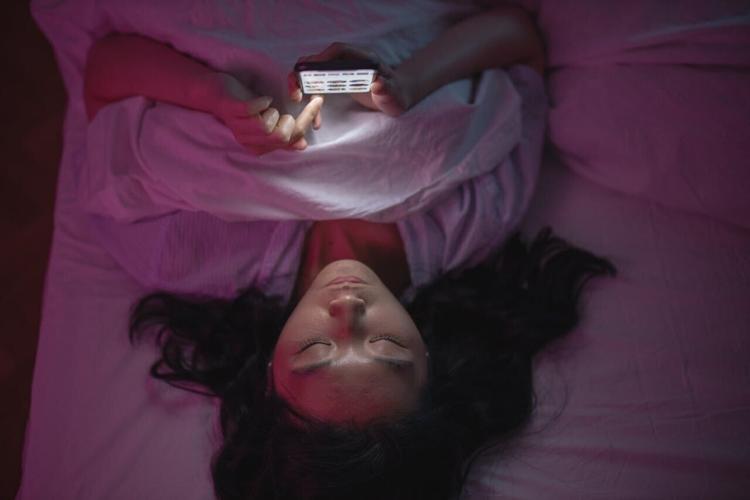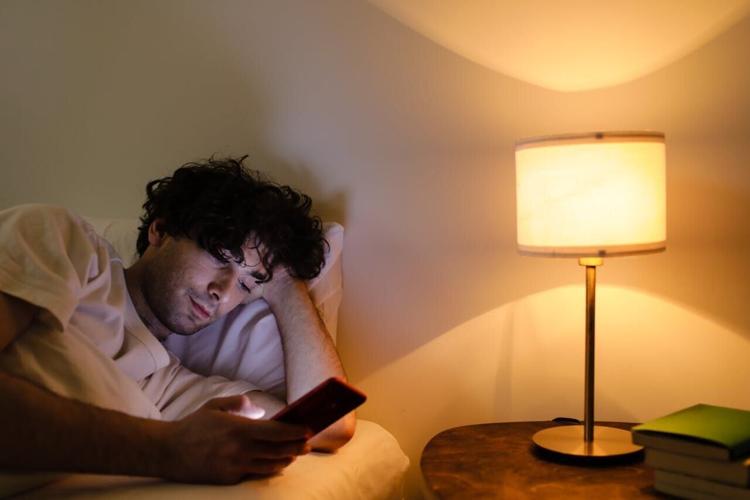
Photo by cottonbro studio via Pexels
By Stephen Beech
Loneliness and anxiety among "night owls" trigger smartphone and social media addiction, according to new research.
Young adults who stay up all hours are more prone to developing "problematic" relationships with technology due to a "vicious cycle" as a result of being more active in the evening, say scientists.
The researchers say phone addiction is characterized by anxiety when separated from one’s device, neglecting responsibilities in favor of phone use, and compulsively checking notifications.
Social media addiction is similarly marked by excessive, uncontrolled usage that interferes with daily life.
Nearly 40% of UK students are now believed to show signs of social media addiction, with young women at particularly high risk.
Previous research has linked regularly staying up late to a range of negative consequences - including poor sleep quality and depression as well as addictive behaviors.

Photo by Keenan Constance via Pexels
But, until now, no study had investigated the mechanisms underlying the link between being an “evening person” and problematic technology use.
It's not just a matter of screen time, according to the research by scientists from the University of Portsmouth and the University of Surrey.
They identified loneliness and anxiety as the primary mediating factors - with smartphone and social media use likely being used by young adult night owls as "coping strategies" for their anxiety and feelings of loneliness.
In what is thought to be the first study of its kind, the research team surveyed 407 young adults aged 18 to 25, using validated psychological measures to investigate how sleep-wake timing relates to problematic smartphone use and social media addiction.
The study, published in the journal PLOS One, examined the mechanisms underlying those associations and identified loneliness and anxiety as the primary contributors.
Dr. Anna-Stiina Wallinheimo, from the University of Portsmouth, said: “Our findings point to a vicious cycle.
“Young adults who are naturally more active in the evening often find themselves socially out of sync, which may lead to feelings of loneliness and anxiety.
"Many then turn to smartphones and social media to cope, but unfortunately, these tools can make things worse, not better.”
“This research fills a crucial gap in the literature.
“While we’ve known that night owls are more vulnerable to problematic technology use, we haven’t understood why.
"Now we can see that emotional factors - especially loneliness - are playing a significant role.”

Photo by Ron Lach via Pexels
She added: “These young people aren’t using technology just because it’s available.
“They’re using it to try to soothe emotional discomfort. The tragedy is that it often deepens their distress instead.”
The research team say that prevention efforts should target emotional well-being - especially for young adult "night owls" who are at the highest risk.
Dr. Simon Evans, from the University of Surrey's School of Psychology, said: “Rather than simply telling young people to spend less time on their phones, we need to address the reasons behind their usage.
“That means providing effective strategies to manage loneliness and anxiety - particularly during late evening hours when support services are limited, and feelings of isolation can be most intense.”
The researchers called for targeted education and support systems for young adults, especially students, who may not realize their sleep patterns and emotional struggles are placing them at heightened risk of problematic technology use.
Dr. Wallinheimo said: “Increased awareness of these underlying mechanisms could lead to far more effective interventions."
She added: “If we can help young people understand that their phones and social media feeds aren’t the solution to loneliness or anxiety but part of the problem, we might begin to turn the tide.”























(0) comments
Welcome to the discussion.
Log In
Keep it Clean. Please avoid obscene, vulgar, lewd, racist or sexually-oriented language.
PLEASE TURN OFF YOUR CAPS LOCK.
Don't Threaten. Threats of harming another person will not be tolerated.
Be Truthful. Don't knowingly lie about anyone or anything.
Be Nice. No racism, sexism or any sort of -ism that is degrading to another person.
Be Proactive. Use the 'Report' link on each comment to let us know of abusive posts.
Share with Us. We'd love to hear eyewitness accounts, the history behind an article.